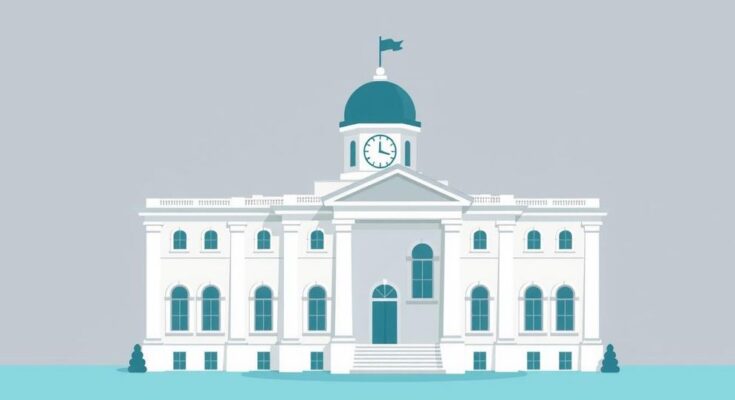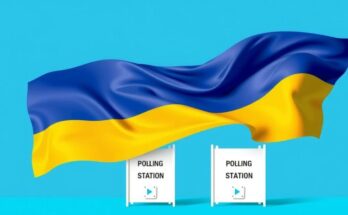The Interim Government of Bangladesh, led by Chief Adviser Professor Muhammad Yunus, is committed to holding elections either in December or June, depending on the reforms requested. The government remains neutral towards the Awami League while addressing legal issues linked to its members. Efforts to support Rohingya refugees and combat misinformation are also highlighted, alongside a desire for strong relations with India.
The Interim Government of Bangladesh remains committed to conducting elections on schedule, with no intention of postponing them due to external pressures, affirmed Chief Adviser Professor Muhammad Yunus in a meeting with the International Crisis Group. He outlined two potential timelines for the elections: December, should political parties call for limited reforms, or June of the following year if broader reforms are sought.
Professor Yunus expressed confidence in maintaining the election dates, stating, “We have no reason to change the election dates,” while assuring the public that the electoral processes will be free and fair. He clarified that the government does not plan to prohibit the Awami League from participating in elections, but individuals implicated in serious crimes may face legal repercussions in national courts and potentially at the International Criminal Court.
The Chief Adviser indicated ongoing discussions with political parties regarding a Consensus Building Commission, aiming to finalize the July Charter to guide governmental policies. The International Crisis Group commended the government’s recent apprehension of Rohingya insurgent leader Ataullah as indicative of its dedication to peace in refugee camps, while also urging increased interactions with the Arakan Army in Myanmar.
Professor Yunus also highlighted that the government is actively seeking aid for Rohingya refugees and is optimistic that a forthcoming UN conference will draw significant international attention to the crisis. Dr. Comfort Ero, leading the International Crisis Group delegation, reaffirmed their support for Bangladesh against targeted misinformation and disinformation campaigns, particularly emphasizing challenges originating from Indian media.
In closing, Professor Yunus expressed Bangladesh’s intention to cultivate strong bilateral relations with India despite frustrations over the spread of adverse narratives about the nation.
In summary, the Interim Government of Bangladesh is resolute in holding elections on time, with specific deadlines contingent on the scope of political reforms requested. The government aims to ensure a fair electoral process and is actively engaged in discussions with political parties while addressing issues surrounding the Awami League and Rohingya refugees. The government’s interactions with the International Crisis Group reflect a mutual commitment to stability and collaboration on pressing issues.
Original Source: www.justnewsbd.com




